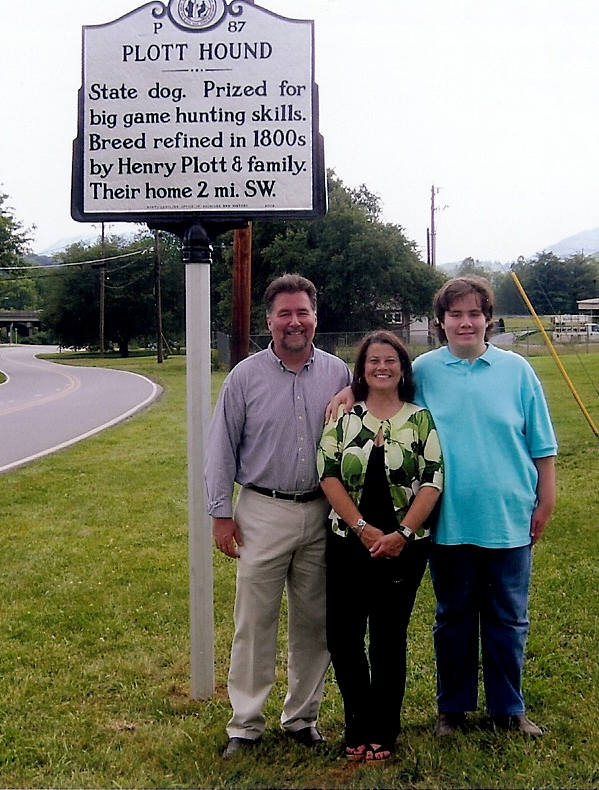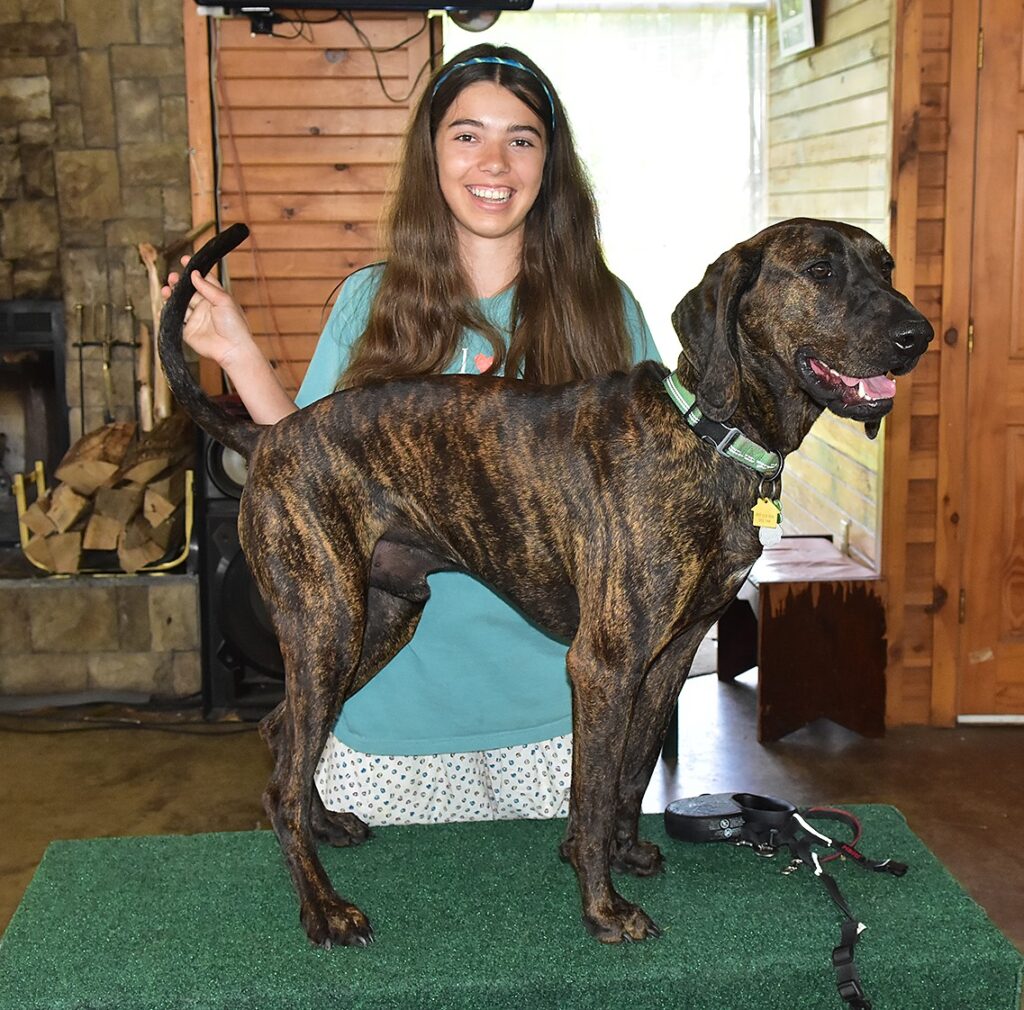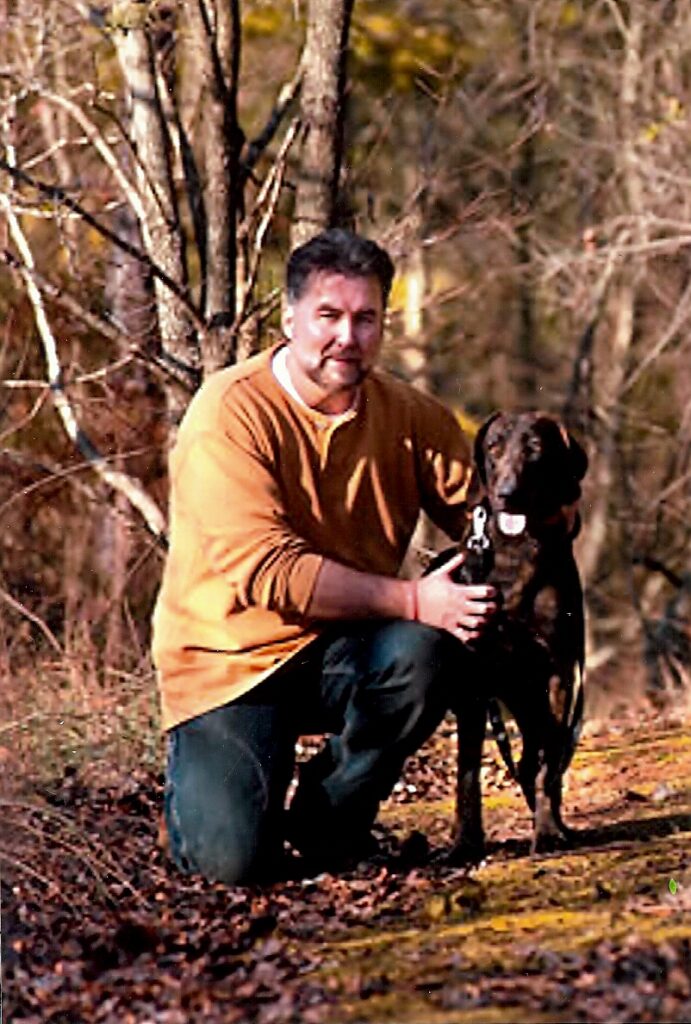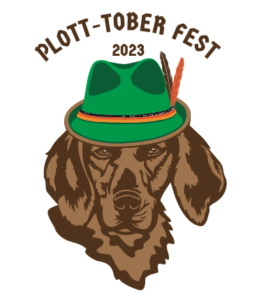From a tumultuous ride on a sailing ship destined for Philadelphia from Germany to the craggy hollows of Haywood County, hot on the trail of a 200-pound black bear, to the hallowed halls of the North Carolina Legislature to the esteemed ring of the Westminster Dog Show – the Plott hound has found its way into the hearts of hunters and dog lovers the world over for more than 250 years.
Johannes Plott, teenage son of a gamekeeper in what is now present-day Germany’s Black Forest, immigrated to the “New World” with five of his prized large game hunting dogs, crossing the Atlantic in 1750 to a future no one could have imagined. Winding up in New Bern, North Carolina, Johannes continued to develop the breed as he moved westward. By 1801, his son Henry brought these early American Plott hounds into the Haywood County mountains, which was attracting many German immigrants at the time.

Settling in an area of the county that is now called Plott Creek and in the shadow of the Plott Balsam Mountain Range, Henry’s family refined the breed as a working dog that not only guarded home and livestock, but fearlessly hunted wild boar and black bear. Henry’s descendents took up the family legacy, and a distinct breed was developed in Haywood County. Today Plott hounds are considered a rare All-American dog breed that joins only several dozen other American breeds developed before the 20th century. By 1946, the Plott was officially recognized by the United Kennel Club.
And their fame did not end there. Imagine the halls of the North Carolina Legislature echoing with the baying of Lucy as her master, State Representative Hugh Lee of Rockingham, led her into a Senate committee meeting. Lee joined State Senator Robert Swain of Buncombe County in arguing for the passage of a bill to make the Plott hound the North Carolina state dog. Five months later the bill passed and in 1989, the Plott hound gained the official title.
In 2008 the first Plott hounds competed in the Westminster Kennel Club dog show, where they are described as having a “striking color” and present as “intelligent, alert and confident.” The official Westminster description goes on to say the Plott “combines courage with athletic ability” and are “loyal and eager to please.” The statement that might have pleased Johannes Plott the most, however, declares the Plott to be noted for “stamina, endurance, agility, determination and aggressiveness when hunting.”
But don’t let their big game hunting reputation fool you. They are devoted family members and interact well with children. The large majority are valued for their work on the hunting trail, but many are simply enjoyed as family pets who might prefer to bay instead of bark when the doorbell rings.


The future of the breed is indeed very bright due to the invaluable work of Johannes Plott’s great-great-great grandson, Bob Plott, author, speaker, and tireless advocate of the Plott hound. Bob has written many books and articles about the dog as well as publications about hunting in the Smoky Mountains and Southern Appalachians. Bob is a co-founder of the original PlottFest, which has celebrated the Plott hound with competitions and bench shows for many years. PlottFest has now joined forces with the Haywood County Historical & Genealogical Society to create PLOTT-TOBER FEST, which will not only continue to celebrate the Plott hound, but will also bring to light the rich German history of Haywood County – the incubator for this remarkable breed whose ancestors reached American shores the same time German immigrants were also on the hunt for a better life. Both the dog and the people did very well for themselves right here in Haywood County!

